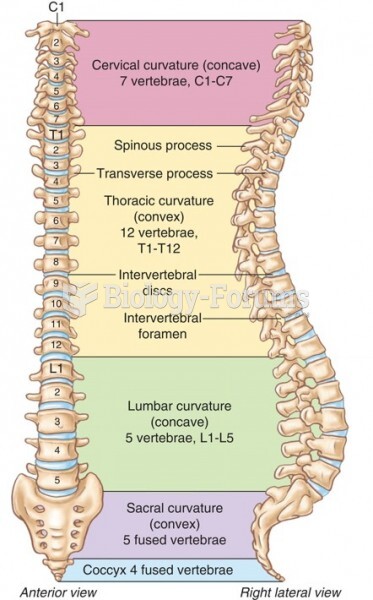This topic contains a solution. Click here to go to the answer
|
|
|
Did you know?
Drying your hands with a paper towel will reduce the bacterial count on your hands by 45–60%.
Did you know?
All adverse reactions are commonly charted in red ink in the patient's record and usually are noted on the front of the chart. Failure to follow correct documentation procedures may result in malpractice lawsuits.
Did you know?
The first war in which wide-scale use of anesthetics occurred was the Civil War, and 80% of all wounds were in the extremities.
Did you know?
The word drug comes from the Dutch word droog (meaning "dry"). For centuries, most drugs came from dried plants, hence the name.
Did you know?
Oliver Wendell Holmes is credited with introducing the words "anesthesia" and "anesthetic" into the English language in 1846.
 Middle adulthood can bring large-scale changes in lifestyle and interests, as illustrated by this ph
Middle adulthood can bring large-scale changes in lifestyle and interests, as illustrated by this ph
 A flat-tip (straight-blade) screwdriver. The width of the blade should match the width of the slot ...
A flat-tip (straight-blade) screwdriver. The width of the blade should match the width of the slot ...





